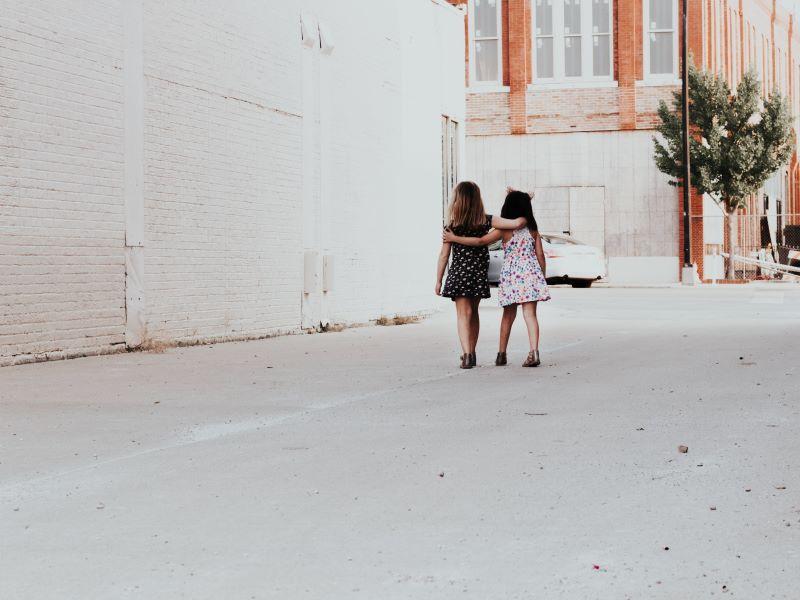“Academia is not, by and large, a kind place.” So begins Catherine Denial’s A Pedagogy of Kindness. Her distinction between niceness and genuine care has never felt more urgent. In today’s financial climate, cruelty is often disguised as protocol.
Increasingly, senior leaders are telling faculty and staff, either implicitly through increasing class sizes or explicitly through direct statements, to pull back on student support in the name of “efficiency”, often dismissing care as unnecessary “hand-holding”.
Kindness is being framed as a luxury we can no longer afford.
- Not all students want to fit in, but every student wants to matter
- Three strategies to build student belonging from the start of their academic journey
- Spotlight guide: Student support in the university classroom
It’s telling how quickly our values can shift under financial constraint. We’ve lost some good people recently – some left by choice, while others were pushed out, packed up and erased.
But here’s the problem with that logic: caring isn’t the same as coddling. This kind of rhetoric sets up a false binary – either we coddle students or we abandon them.
Sink or swim…or scaffold
The language of “no more hand-holding” presents a dangerous choice: either we overprotect students or we leave them to sink or swim. This binary serves institutional cost-cutting more than student learning. It implies that care and rigour are incompatible.
But as instructors, we know better. The most transformative learning happens when students feel genuinely seen and supported while being challenged to grow. This isn’t hand-holding – it’s scaffolding. It’s not about lowering standards, it’s about creating conditions in which students can thrive.
Holding hearts
In practice, a pedagogy of kindness – of holding hearts, rather than hands – might mean:
Designing for dignity
Structuring our courses so that struggling doesn’t equal suffering:
Offering multiple ways for students to demonstrate their learning: we all carry unique gifts – ways of being, thinking, creating and relating to the world. Through offering a range of assessment formats, such as written essays, presentations, creative assignments or digital media, students are more likely to be able to showcase their strengths while demonstrating course learning objectives.
Granting extensions without requiring personal disclosures: allow students to request additional time for assignments without having to disclose personal details about their health conditions or other aspects of their private lives. If we want students to trust us, we need to start trusting them too.
Creating opportunities for revision and growth, rather than relying solely on high-stakes assessments: heftily weighted assessments, whether they be midterms, exams or final papers, are anxiety-inducing experiences for many students. Try adding more low-stakes assessments such as quizzes, where multiple attempts can be made or the lowest grade out of a set of quizzes can be dropped. If you assign a final paper, ensure there’s a paper plan/proposal component in case students are off-track. If they ask to redo an assignment, consider letting them.
Practising transparency
Be honest and open with students, explaining curricular and assessment choices. Genuinely listen to student feedback and adjust where possible.
Students are naturally curious – share the reasoning behind your syllabus choices. Explain why certain readings are required while others are designated as optional, for instance. Ask for their input throughout the course, not just at the end.
Choosing to say no
When institutional policies harm students, we can choose not to be their enforcers. We can push back by:
Quietly implementing humane alternatives: rigid policies exist, but there are always exceptions. Instructors have agency and the ability to act with care. Consider implementing a “grace period” for assignments submitted shortly after the deadline, allowing students an assessment reattempt or permitting students to miss one to two classes without penalty.
Advocating for student needs: raise concerns within your department when you notice policies that are consistently disadvantaging certain students.
Refusing to adopt the language of scarcity and punishment: frame citation concerns as opportunities for learning rather than potential misconduct, for example. Not to downplay the seriousness of academic integrity but to avoid students feeling criminalised.
Small acts of resistance
In an institutional context that increasingly sees care as weakness, everyday choices become acts of resistance.
Responding to struggling students without suspicion: if a student is reaching out for help, they’re trying. Show that you value that and hold back from making assumptions.
Offering feedback that honours the person behind the work: comment banks can be helpful but lack personalisation. Feedback should be personal. Use the student’s name in written comments and don’t just provide points of improvement. Recognise the things they did well, their effort, creativity and individuality.
Refusing to frame student needs as burdens: ensure students know that providing additional support during office hours or via email is integral to teaching and student grown, not an inconvenience.
These practices don’t require institutional permission – only our commitment to seeing students as whole human beings, deserving of dignity and support.
The courage to care
Genuine care doesn’t weaken students – it strengthens them. When we hold students’ hearts, we aren’t shielding them from challenge – we’re creating a safer space in which risk-taking becomes possible.
In times when institutions demand we choose between efficiency and humanity, choosing humanity becomes a radical act.
We may not be able to control the broader forces reshaping higher education but we can control how we show up for the students in front of us.
We can choose to hold hearts, not hands – and in doing so, model the kind of world we want our students to help build.
Rachelle McKay is educational developer, Indigenous knowledges & ways of knowing at Dalhousie University’s Centre for Learning and Teaching and teaches in the Indigenous studies programme.
If you would like advice and insight from academics and university staff delivered direct to your inbox each week, sign up for the Campus newsletter.




comment